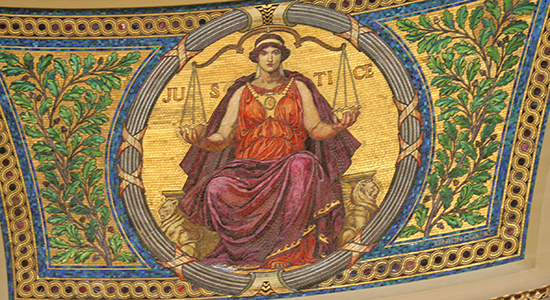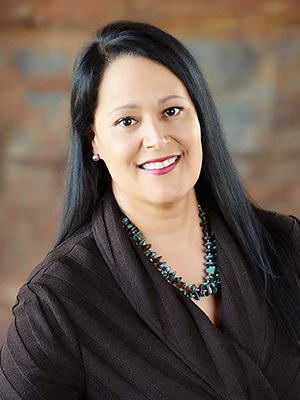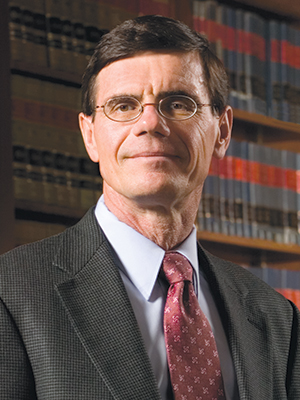
Oct. 4, 2017 – Working as a lawyer for a federally recognized Indian tribe? That time will now count toward the years required to obtain admission by practice in Wisconsin, otherwise known as the “reciprocity” rule, which allows admission without a bar exam.
Last week, the Wisconsin Supreme Court ordered an amendment to Supreme Court Rule (SCR) 40.05, allowing legal services (or service as a judge) for federally recognized Indian tribes to count for purposes of admission by proof of practice.
Previously, the rule said lawyers could obtain reciprocity admission to practice law in Wisconsin if they substantially engaged in the practice of law “in a state or territory, the federal government, or the District of Columbia” for at least three of the five years prior to admission, provided the lawyer met other requirements.
The rule did not include work for a “federally recognized Indian tribe.” Thus, the Board of Bar Examiners (BBE) could and did deny reciprocity credit for lawyers who worked at least three years for a federally recognized Indian tribe, in Wisconsin or elsewhere.
Sovereign Nations
In 2000, Wendy Helgemo tried to obtain reciprocity admission to Wisconsin after working almost five years for federally recognized Indian tribes in Minnesota. The BBE denied her application, stating the time was not “countable.”
And the Wisconsin Supreme Court, in 2002, affirmed the BBE’s decision, stating that “while practice before a tribal court may certainly constitute the active practice of law, it is not the active practice of law ‘in the courts of the United States or another state or territory or the District of Columbia,’”1 citing the language of SCR 40.05.
Helgemo argued that the rule was “inherently discriminatory” against Native American attorneys. But the court explained that Indian tribes are sovereign nations, that is, law practice for an Indian tribe equates to law practice in foreign countries.
Reciprocity Recognized

Tribal President Shannon Holsey
Last year, the Stockbridge-Munsee Community, one of Wisconsin’s 11 federally recognized Indian tribes, petitioned the Wisconsin Supreme Court to change the rule.
“This rule and subsequent interpretation through the Helgemo decision, significantly hinder our nation’s and other tribal governments’ ability to retain qualified legal counsel in Wisconsin,” wrote Tribal President Shannon Holsey, noting other states with one or more Indian tribes, including Minnesota and Iowa, allow reciprocity for tribal work.
Holsey also sees more overlap now between state, federal, and tribal courts. “The job of an in-house tribal attorney is more layered and in-depth than has been characterized,” Holsey noted. “Tribal attorneys are constantly analyzing state, federal, and tribal law in their legal roles and as the Tribe’s legal representation. We also require that our tribal attorneys have a state of Wisconsin license as they do practice in state courts.”
Gov. Scott Walker backed the Stockbridge-Munsee Community’s position, as did the State Bar of Wisconsin. The BBE had no objection to the rule change, which is effective as of Sep. 27, 2017, and applies to applications that were pending as of that date.
Supreme Court Amends Evidence Rules
According to Supreme Court Commissioner Julie Rich, who was authorized to speak on the court’s Sept. 25 closed conference, the court voted to approve, in concept, a petition to change several evidence rules, including rules relating to specific instances of conduct, prior convictions, and the "rule of completeness." The court also adopted a new bias rule.
 Joe Forward, Saint Louis Univ. School of Law 2010, is a legal writer for the State Bar of Wisconsin, Madison. He can be reached by email or by phone at (608) 250-6161.
Joe Forward, Saint Louis Univ. School of Law 2010, is a legal writer for the State Bar of Wisconsin, Madison. He can be reached by email or by phone at (608) 250-6161.
The final order may include some language changes to petition 16-02A, which the Wisconsin Judicial Council filed in March. An effective date of Jan. 1, 2018, is likely.
Wis. Stat. § 901.07: Remainder of or Related Writings or Recorded Statements
The current rule, Wis. Stat. section 901.07, says: “[W]hen a writing or recorded statement or part thereof is introduced by a party, an adverse party may require the party at that time to introduce any other part or any other writing or recorded statement which ought in fairness to be considered contemporaneously with it.”
Known as the “rule of completeness,” an amendment clarifies that the rule applies to writings or statements, whether “recorded or unrecorded,” to “provide context or prevent distortion.” The Judicial Council said the current rule “has caused confusion regarding the rule’s application to oral statements.”
For instance, in State v. Eugenio, the defense cross-examined the victim about possible contradictory statements to other individuals. The court of appeals acknowledged that section 901.07 “references only written or recorded statements,” but that the common law “rule of completeness” still existed for oral statements in Wisconsin. Thus, the rule change merely codifies the common law rule of completeness that already exists.
Wis. Stat. § 906.08: Evidence of Character and Conduct of Witness
Wis. Stat. section 906.08 allows a party to “attack the credibility of a witness” or use “reputation or opinion” evidence to support credibility, subject to two limitations. One limitation relates to “specific instances of conduct.”
Section 906.08(2) says: “Specific instances of the conduct of a witness, for the purpose of attacking or supporting the witness's credibility, other than a conviction of a crime or an adjudication of delinquency … may not be proved by extrinsic evidence.”
Petition 16-02A proposed replacing the term “credibility” in section 906.08(2) with the phrase “character for truthfulness.” The supreme court will adopt the change.

Marquette University Law Professor Daniel Blinka
The Judicial Council consulted Marquette University Law Professor Daniel Blinka on the proposed change. Prof. Blinka has written books and articles on Wisconsin evidence law and is often cited in Wisconsin Supreme Court opinions on evidence. In correspondence to the court, Blinka explained why the amendment should be adopted.
“It clarifies that the ‘specific instances’ contemplated by [that provision] must be relevant to a witness’s character for truthfulness, as this court held in Rogers v. State,” Prof. Blinka wrote. “Put differently, it does not permit more broadly based ‘bad character’ attacks that invite unfair prejudice, confusion, and waste a court’s time.
“The specific instances are prior acts of deceit and dishonesty,” Prof. Blinka explained. “Case law requires that lawyers have a good faith basis for asking such questions and give trial judges discretion to exclude deceitful acts that are remote in time or of marginal probative value.”
The court will also adopt the same language change to section 906.08(3), which says a witness or accused does not waive the privilege against self-incrimination “when examined with respect to matters which relate only to credibility.” The term “credibility” will be replaced with “character for truthfulness,” consistent with section 906.08(2).
Wis. Stat. § 906.09: Impeachment by Evidence of Conviction of Crime
Wis. Stat. section 906.09 deals with attacking the credibility of a witness with evidence that the witness has been convicted of a crime or adjudicated delinquent.
The Judicial Council sought the most significant amendments to provisions of this rule to place it on par with the federal rule counterpart, noting “the federal rule is much more restrictive in terms of crimes that can be used for impeachment purposes.”
But the amendment is not based on the federal model. Prosecutors had raised concerns that adoption of the federal rule would disturb settled Wisconsin case law. Instead, amendments are based on restrictions identified in Wisconsin case law.
The Judicial Council recommended that reference to “credibility” be changed to “character for truthfulness,” consistent with sections 906.08(2) and (3).
The general rule, section 906.09(1), would also restrict further inquiries about prior convictions, and the number of them (if the witness answers accurately), “unless it is for the purpose of rehabilitating the witness’s character for truthfulness.”
The petition also includes specific factors that may be used to determine when convictions or adjudications of delinquency may be excluded, under section 906.09(2).
The current rule says evidence of a prior conviction or adjudication of delinquency “may be excluded if its probative value is substantially outweighed by the danger of unfair prejudice.” The petition adds six factors to consider “in evaluating whether to admit evidence of prior convictions for the purpose of attacking a witness’s truthful character.”
Those factors include: 1) the lapse of time since the conviction; 2) the rehabilitation or pardon of the person convicted; 3) the gravity of the crime; 4) the involvement of dishonesty or false statement in the crime; 5) the frequency of the convictions; and 6) any other relevant factors.
Creation of Bias Rule
The Judicial Council petition recommended, and the court adopted in concept, creation of a bias rule that would allow evidence of bias, prejudice, or interest of the witness for or against any party to the case “for the purpose of attacking the credibility of a witness.”
A supporting memo notes that the proposed bias rule codifies the common law in Wisconsin. Unlike sections 906.08 and 906.09, Prof. Blinka noted, “[b]ias is not narrowly focused on truthful character,” as it “may induce mistakes as well as lies.”
“For example, experts who earn substantial income from testifying may well be induced to shade their opinions to earn a fee,” Blinka noted. “Whether the shaded opinion is a fabricated opinion (lie) or a subconscious overstatement (honest but mistaken), the witness’s financial stake is relevant to his or her credibility.”
The petition notes that the proposed bias rule is identical to the bias rule that Minnesota adopted. A note would explain that bias may be established by extrinsic evidence.
As noted, the court has adopted the Judicial Council’s changes to Wisconsin’s evidence rules in concept. Any final order, with an expected effective date of Jan. 1, 2018, may include language drafting changes but will not change the substance of the proposals.
Endnotes
1 In re Helgemo, 2002 WI 57, 253 Wis. 2d 82, 644 N.W.2d 912.
